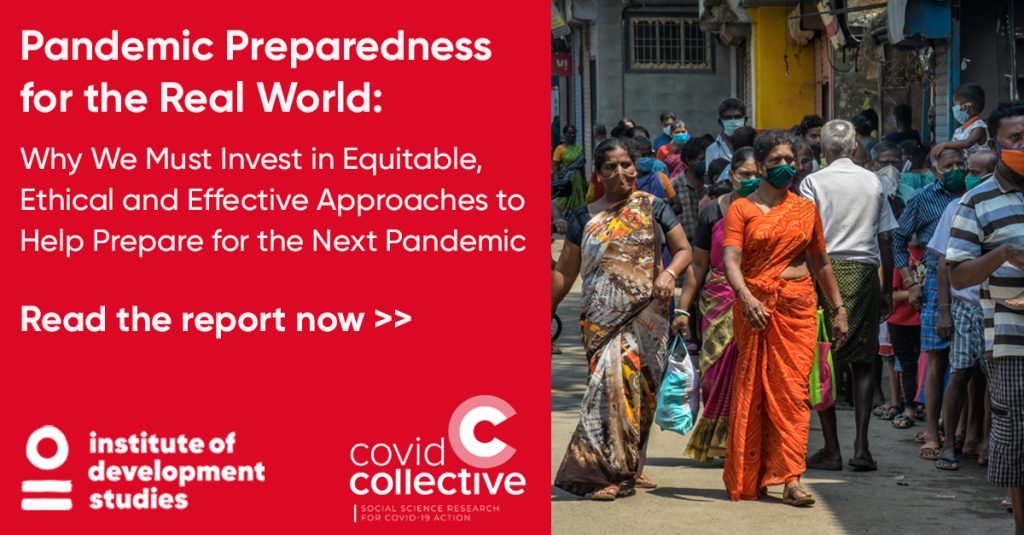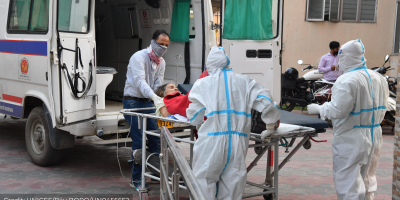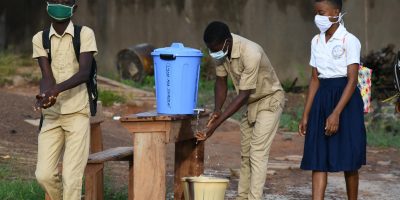A new report from the Institute of Development Studies which calls on world leaders to look beyond the conventional staples of the public health toolkit as they draw up a new WHO global treaty on pandemics.
Based on a large and growing body of social science research undertaken during and since Covid-19, in locations from urban Northwest London to rural Zimbabwe, the Pandemic Preparedness for the Real World report reveals failures in the conventional approaches to pandemic preparedness. We are calling for the global health community to think beyond vaccines and lockdowns and instead propose investment in a radical, five-point action framework for pandemic preparedness which responds to people’s experiences, knowledge and needs.
The report argues that social, economic and political issues must be as core to the pandemic preparedness agenda as biological ones. It calls for investment across five key action areas:
- Professionals. Investment in ‘reliability’ capacity of health professionals and others working in critical infrastructures in health, such as nurses.
- Knowledge. Mechanisms such as citizens’ panels to ensure diverse knowledge, expertise and perspectives are prioritised and integrated.
- Resilience. Reform of health, social and other systems and structures to be accessible to all and support people’s resilience to disease crises.
- Institutions. Decentralising decision making, empowering local authorities and challenging entrenched interests so people’s trust in politics and state institutions can be renewed.
- Ethics. Embedding social justice and equity throughout preparedness.
Such measures would ensure more equitable, ethical and effective preparedness and thus response. They would also contribute to addressing some of the major social injustices in the world today.
The report includes examples of the failures of pandemic planning ahead of Covid-19. Stories of success to learn from include a community-based monitoring system in Brazil which demonstrated that recently contacted indigenous peoples needed a differentiated approach to health service delivery, and a surplus food distributor in Brighton whose extensive local networks and knowledge enabled it to scale up effectively during the pandemic period. One organisation in Mumbai was able to offer prevention information and food provision during Covid-19 by incorporating these pandemic responses only thanks to its existing women’s and children’s health programme.






